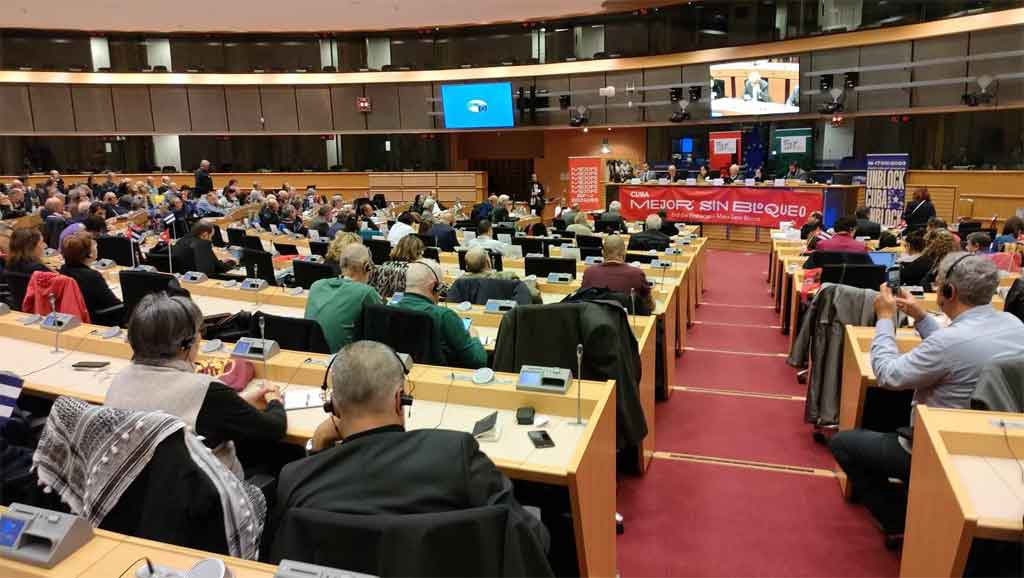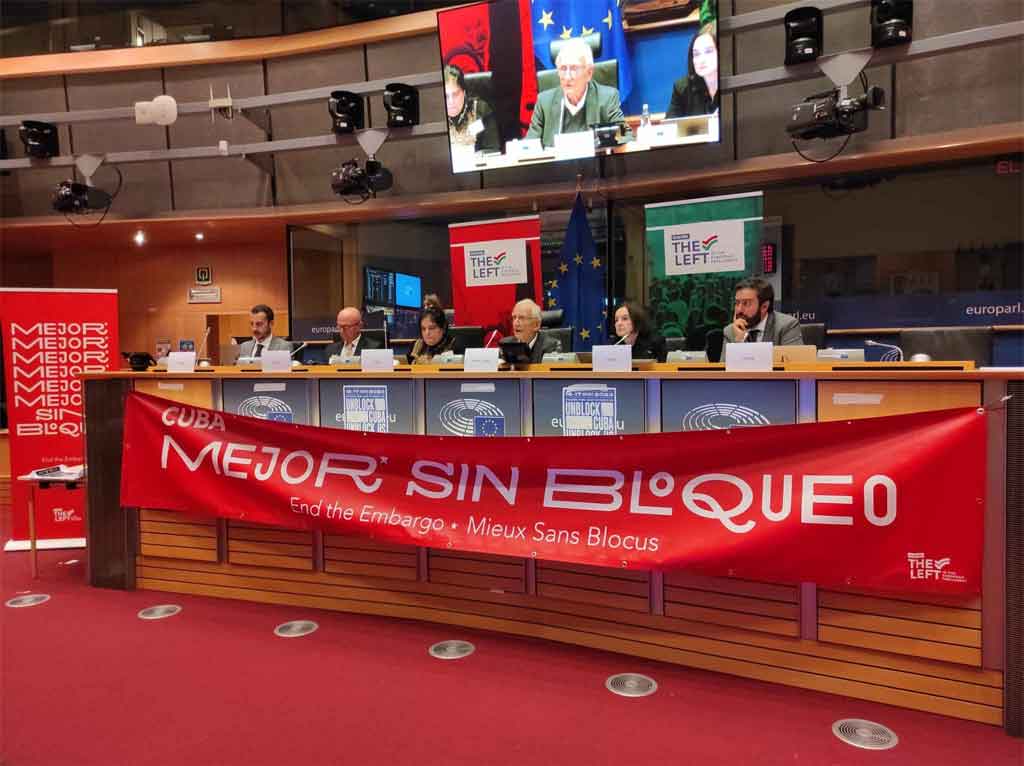In the introduction to the case, Bailiff David Rodriguez explained that the case is being tried in view of these denunciations, centered on flagrant human rights violations, accompanied by documentary evidence that points to the US government as the responsible party.
The case will follow the charges filed against keeping the blockade against the Cuban people, he stressed in this capital on the first of two days of sessions of the court.
The court is chaired by the German expert in International, Public and Constitutional Law, Norman Peach, who is also a member of the Democratic Society of Jurists; Greek Professor of the Theory of the State and Law Dimitris Kaltsonis, and the member of the Portuguese Bar Association Ricardo Joao Duarte.

Rounding out the panel are US National Lawyers Guild President Suzanne Adely, author and journalist Daniela Dahn, and public and private international law and food law specialist Simone Dioguiardi.
Peach explained to approximately 200 people present in one of the rooms of the European Parliament that the process will seek to identify whether the US blockade against Cuba violates international laws and which laws are infringed by its extraterritorial scope.
We will analyze here whether or not the United States complies with the principles of peaceful coexistence, human rights, international law, the agreements of the World Trade Organization and the laws of the European Union, he added.
In turn, the Prosecutor’s Office, composed of Jan Fermon, a jurist from the Brussels Bar Association; Nana Gyamfi, from the National Conference of Black Lawyers of the United States; and Antonio Segura, from the Madrid Bar Association, introduced their arguments.
In their speeches, the prosecutors warned that the term sanctions should not be used to define the blockade, ‘because Cuba has done nothing wrong,’ and that the term unilateral coercive measures should be used instead.
They also recalled that the United Nations has already adopted 28 resolutions prohibiting this kind of unilateral action.
The Prosecutor’s Office underscored the suffering that the United States causes with its blockade to the Cuban people, with a disproportionate impact on women and disabled people.
The effects on health care and food, and the damage caused by preventing other countries from benefiting from the humanitarian work and Cuban achievements were also underlined.
After the Prosecutor’s Office address, witnesses in the case will present their denunciations.
jg/abo/wmr









